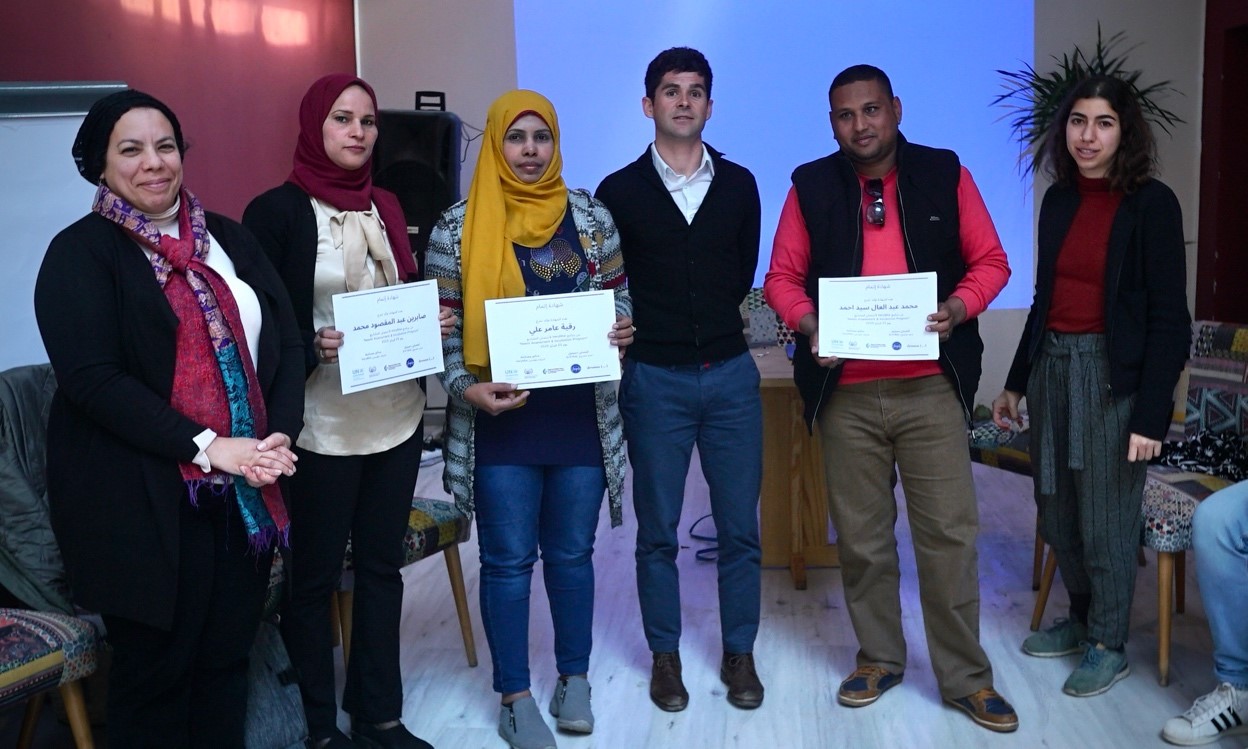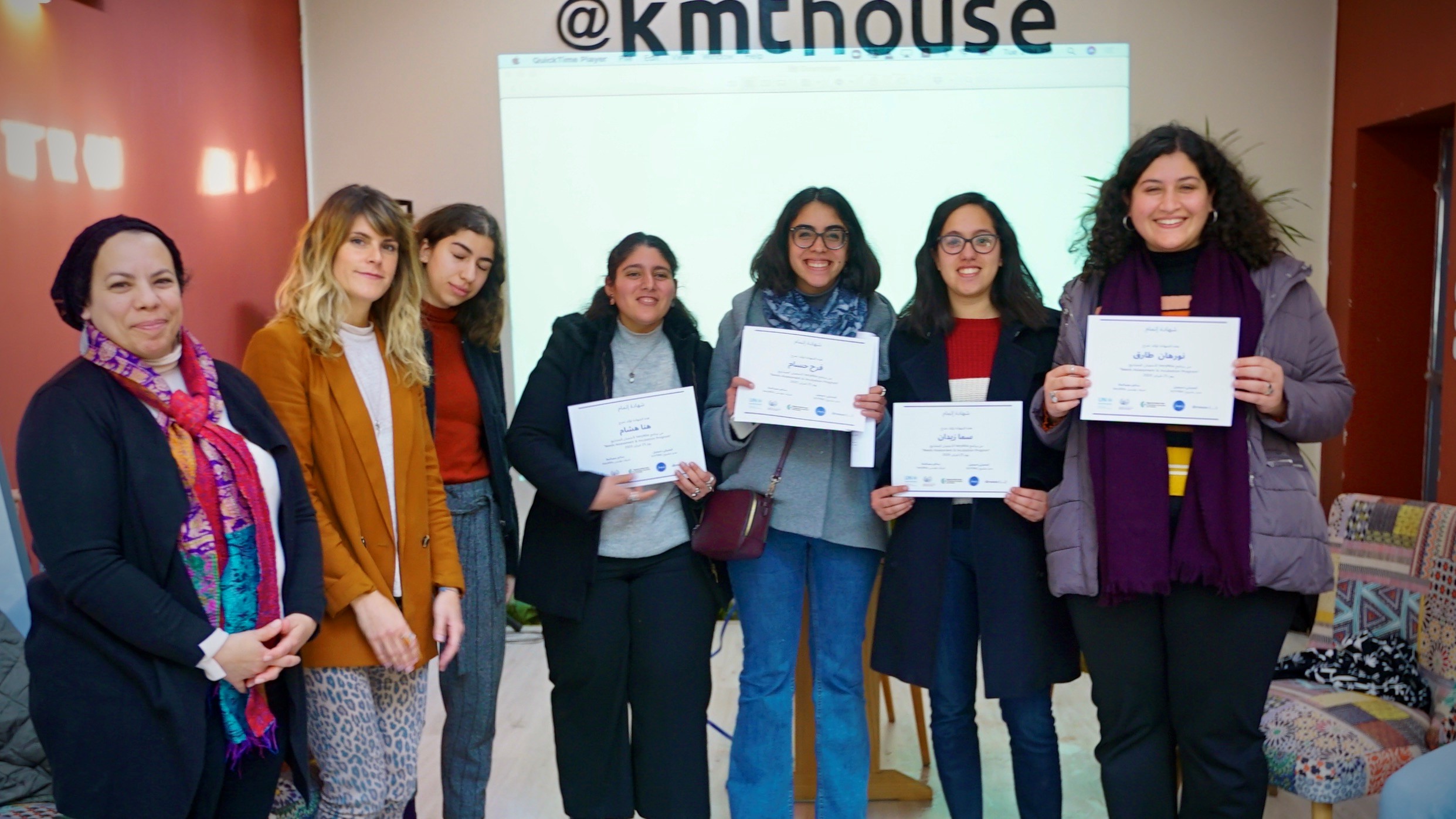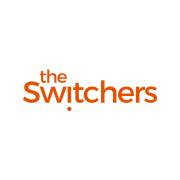

Subscríbete al SCP News
Learn about the #BagToTheFuture Wrap Up Event in Cairo, a social impact hackathon on plastics

Exploring entrepreneurial solutions to enhance alternatives to SUPBs and facilitate waste management
VeryNile and the Regional Activity Centre for Sustainable Consumption and Production (SCP/RAC) of the UN Environment Programme/MAP invited members of the larger environmental ecosystem to KMT House for a half-day social impact workshop/hackathon as the #BagToTheFuture Award came to an end. The event celebrated both Konoz and Peradica’s entrepreneurial journey and achievements so far – having completed their incubations and prepared to spend their seed funds.
‘Responsible Alternatives’
Sabrene AbdelMaksoud Mohamed, Ruqaya Amer Ali, Mohamed AbdelAl Sayed Ahmed and Haitham AbdelAl Sayed Ahmed presented their winning initiative to the 'Responsible Alternatives Track' rewarding the best innovative idea providing alternatives to single use plastic bags. They are a group of friends from Luxor that founded Konoz, an initiative combining cultural heritage and a free, natural resource to produce reusable bags using discarded palm tree leaves. If you're interested in collaborating with Konoz or purchasing their products, you can contact them via email on pr.sabren@gmail.com.

Check out their promotional video here
‘Responsible Choices’
Norhan Tarek, Sama Zidan, Farah Hossam, Hana Hicham and Sara Seif presented their winning initiative to the 'Responsible Alternatives Track' rewarding the best idea or project tackling the way in which we use and consume single use plastic bags. They are a team of five Business Informatic students from the German University in Cairo that founded Peradica. They came up with the idea of creating an application that connects users with recycling agencies in their areas, in exchange for a reward system such as discounts on environmentally friendly products and services. Recycling agencies are provided with more users, enabling them to collect and recycle more.

Check out their promotional video here
The teams were able to network with participants operating within the same environmental eco-system. The purpose was also to bring together various actors united under one ultimate objective of envisioning a better future for SUPBs and waste management. The hackathon was meant to act a focal point at which different individuals and organizations can share learnings, research insights, and recent experiences.

With all participants having similar backgrounds or interests in the environment, we sought to ask the following questions: Where are the opportunities for innovation, change and collaboration? What are the next steps for us, as we grow the movement. What’s on the horizon? How can we fundamentally rethink the way we design, use, and reuse plastics?
Attendees included social entrepreneurs, organizations, NGO’s, environmental activists education and media who shares learning and successful actions from here and around the world. Participants were divided into teams focusing on sub-topics of strengths and obstacles. A mapping exercise illuminated the wealth of resources in the community, including a documentation of the collective intelligence, kills, experiences, and perspectives. Accordingly, the teams examined and brainstormed the transformative solutions possible and how innovation can be fostered between stakeholders.
You can find out more details about in the event report with a summary of speeches and mapped information. The event concluded by aligning around next steps and renewing a sustained commitment to tackling the challenge. Our hope is that the workshop inspired the participants to collaborative action and to renew a sustained commitment to tackling this systemic challenge at is roots, with the ongoing support of a diverse community.
More information
The #BagToTheFuture Award is part of this initiative of the cooperation between UN Environment and SCP/RAC through the project “Protecting the marine environment from land based pollution through strengthened coordination of global action” in Egypt. The Award is framed within the Switchers Fund
, which provides support to green entrepreneurs in North Africa and Middle East through tailored incubation, support in access to market and finance, among others.














